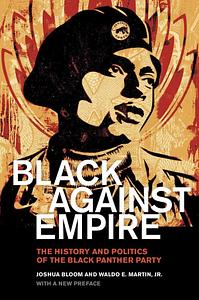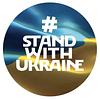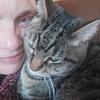Take a photo of a barcode or cover
166 reviews for:
Black against Empire: The History and Politics of the Black Panther Party
Joshua Bloom
166 reviews for:
Black against Empire: The History and Politics of the Black Panther Party
Joshua Bloom
I have never before read on the black power and violent movements of the 60s, more acquainted with the hippy side of the period history. This book gives a very good overview of the Black panther party for self-defense, which started as an attempt to control police in its brutal treatment of non-whites, the roots of the movement, its goals, its social programs (free breakfasts), its view on racial issues, male chauvinism, imperial wars oversees and the like. The authors are clearly biased toward the oppressed blacks and while they try to stay impartial, they if not outright support than at least favor socialist leanings of the party. I guess if they were writing about KKK in the same terms they would be deemed reactionary.
Just an example. One of the important happenings is killing of Lil’ Bobby Hutton:
“On the evening of April 6, two days after King’s death, at a little after 9:00 P.M., three carloads of armed Black Panthers pulled over to the curb on Union and 28th Streets in largely black west Oakland. Eldridge Cleaver was driving the lead car, an old white Ford with a Florida license plate that a member of the Peace and Freedom Party had donated to the Panthers. The entourage included David Hilliard, seventeen-year-old Lil’ Bobby Hutton, and six other rank-and-file Panthers. Cleaver opened the door and walked around to the passenger side of the Ford, reportedly to urinate. A moment later, several police cars pulled up and shined a spotlight on Cleaver. Words were exchanged, then gunfire. The Panthers ran for cover, the police quickly cordoned off a two-block area, and neighbors gathered in the streets. An hour and a half later, Cleaver, having been shot in the foot and rear, his lungs burning from tear gas and firebomb smoke, emerged stark naked from a burning basement, surrendered, and was taken into custody. Lil’ Bobby Hutton emerged from the basement unarmed. Police shot him dead.”
From the text as well as from the later Panthers’ propaganda, the cops started the skirmish – see as they arrived, see that impartial “Words were exchanged, then gunfire”. This may lead the reader to believe that no one knows what has happened this day, there are two equally valid versions. At the same time, if you check Wikipedia (https://en.wikipedia.org/wiki/Bobby_Hutton), there is an interview with Cleaver, who openly states that they ambushed the police, in order to spark rebellion (caused by Martin Luther King murder). ‘Forgetting’ this testimony the authors may as well forgot many other facts in their narrative. That actually made me dislike panthers and their methods, which was unlikely the goal of the authors.
Other thing the book doesn’t describe in detail is how the supposed separation of black colony from the mother state could have possibly worked, which was one of the clearly stated goals of the party.
It is a very thought-provoking read for anyone, who is interested in radical movements and I found some analogues with the current situation in my country.
Just an example. One of the important happenings is killing of Lil’ Bobby Hutton:
“On the evening of April 6, two days after King’s death, at a little after 9:00 P.M., three carloads of armed Black Panthers pulled over to the curb on Union and 28th Streets in largely black west Oakland. Eldridge Cleaver was driving the lead car, an old white Ford with a Florida license plate that a member of the Peace and Freedom Party had donated to the Panthers. The entourage included David Hilliard, seventeen-year-old Lil’ Bobby Hutton, and six other rank-and-file Panthers. Cleaver opened the door and walked around to the passenger side of the Ford, reportedly to urinate. A moment later, several police cars pulled up and shined a spotlight on Cleaver. Words were exchanged, then gunfire. The Panthers ran for cover, the police quickly cordoned off a two-block area, and neighbors gathered in the streets. An hour and a half later, Cleaver, having been shot in the foot and rear, his lungs burning from tear gas and firebomb smoke, emerged stark naked from a burning basement, surrendered, and was taken into custody. Lil’ Bobby Hutton emerged from the basement unarmed. Police shot him dead.”
From the text as well as from the later Panthers’ propaganda, the cops started the skirmish – see as they arrived, see that impartial “Words were exchanged, then gunfire”. This may lead the reader to believe that no one knows what has happened this day, there are two equally valid versions. At the same time, if you check Wikipedia (https://en.wikipedia.org/wiki/Bobby_Hutton), there is an interview with Cleaver, who openly states that they ambushed the police, in order to spark rebellion (caused by Martin Luther King murder). ‘Forgetting’ this testimony the authors may as well forgot many other facts in their narrative. That actually made me dislike panthers and their methods, which was unlikely the goal of the authors.
Other thing the book doesn’t describe in detail is how the supposed separation of black colony from the mother state could have possibly worked, which was one of the clearly stated goals of the party.
It is a very thought-provoking read for anyone, who is interested in radical movements and I found some analogues with the current situation in my country.
This book is so important. It provides a nuanced look at the Black Panther Party, and complicates without vilifying the Party or its members.
Before reading this book, I mainly knew that the Panthers were known for carrying weapons and that was why they were "scary" to white people/the U.S. government. Later I learned that about the Free Breakfast programs, so that became the bulk of what I knew about them. In Ava DuVernay's documentary 13th, I learned about the assassination of Fred Hampton. So in my mind, the murders and incarcerations of Panther leaders was why the Party fell apart. I don't know if I realized the roles of government informants/provocateurs, or how government concessions removed allies' reasons to work with the Panthers.
I'm really glad I read this book.
Before reading this book, I mainly knew that the Panthers were known for carrying weapons and that was why they were "scary" to white people/the U.S. government. Later I learned that about the Free Breakfast programs, so that became the bulk of what I knew about them. In Ava DuVernay's documentary 13th, I learned about the assassination of Fred Hampton. So in my mind, the murders and incarcerations of Panther leaders was why the Party fell apart. I don't know if I realized the roles of government informants/provocateurs, or how government concessions removed allies' reasons to work with the Panthers.
I'm really glad I read this book.
The ending theory that another wide revolutionary movement similar to the Black Panthers may not happen for "a very long time" was depressing but also worrying because we can't wait a very long time!
So much information provided in an easy to read and mostly unbiased manner.
challenging
informative
inspiring
reflective
sad
medium-paced
Black Against Empire is the first comprehensive history of the political development of the short-lived yet hyperinfluentual Black Panthers has been released. The authors managed the incredible feat of cutting a path through the complex jungle of the Panthers' development, concentrating on the politics, the causes for their rise and decline. Sometimes I wished that some loose ends, especially biographical and technical issues, had been explained a bit more. But the chapters are build in a logical order to span the rise and fall of the Party, highlight their achievements and carefully weigh the good and the bad. Also, this book conclusively shows that the US under Nixon and Hoover, and California under Reagan have been guilty of the most barbaric acts of terror to subdue the anti-Imperialistic movements of the 60s.
this is the most comprehensive review of the BPP I could find, would highly recommend a read!
A comprehensive history of the Black Panther Party. It feels like it leaves few, if any stones, unturned, in an exhaustive, sympathetic, and well-researched portrait of the organization and movement. Its tone is academic, and that works against it at times. It also has some repetition that seemed unnecessary and which also confused me at times; like, why is this quote being used again? Still, I'm glad this book exists. We need the resource.
In terms of writing, it's more of a three star book, but I boosted it up one because this book put in the work to make a comprehensive history.
In terms of writing, it's more of a three star book, but I boosted it up one because this book put in the work to make a comprehensive history.
very complete and enlightening history of a misinterpreted and censured movement
Interesting information presented in a dry and repetitive way. Answered the question of what made the Black Panther Party rise and fall when it did, without a lot of heart about the people or events.




